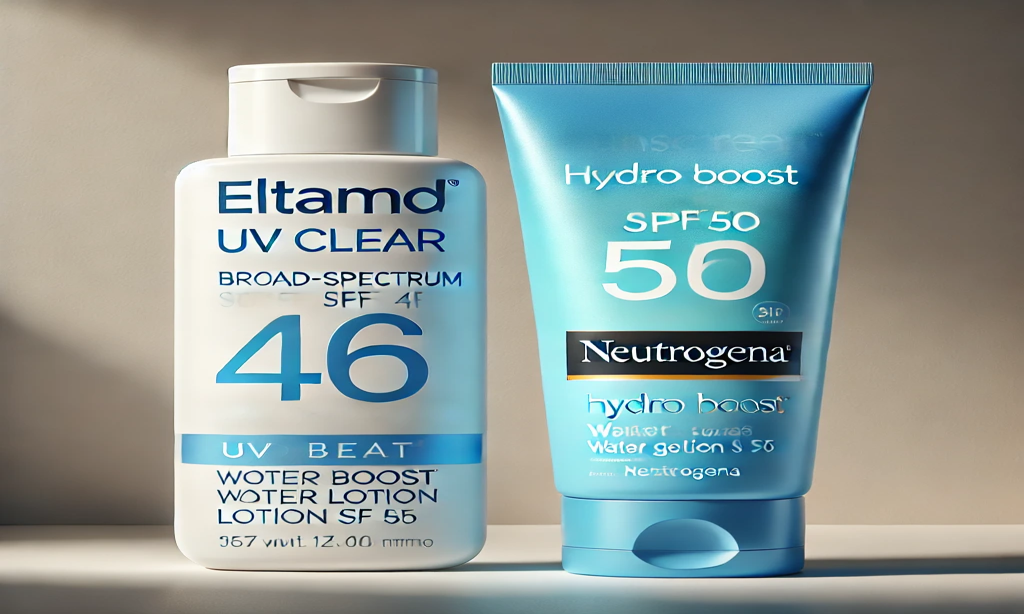
Protect and Perfect: Two Sunscreens Tailored for Your Skin’s Needs.
Sunscreen is essential for healthy, radiant skin. Whether you’re avoiding sunburn or premature aging, choosing the right sunscreen can make all the difference. Here’s a short review of two top-rated sunscreens, their pros and cons, and why they’ve earned a spot as skincare must-haves.
- EltaMD UV Clear Broad-Spectrum SPF 46
This dermatologist-recommended sunscreen is perfect for sensitive or acne-prone skin. Packed with zinc oxide and niacinamide, it provides effective sun protection while calming redness and improving texture.
Pros:
Broad-spectrum UVA/UVB protection with zinc oxide. Light weight, oil-free formula ideal for acne-prone skin. Niacinamide helps reduce redness and inflammation. Fragrance-free and suitable for daily wear under makeup.
Cons:
- Slightly pricier than other sunscreens.
- May feel a bit shiny on very oily skin types.
2. Neutrogena Hydro Boost Water Gel Lotion SPF 50
This hydrating sunscreen is a game-changer for those with dry or combination skin. It combines high SPF protection with the moisturizing power of hyaluronic acid.
Pros:
- Contains zinc oxide for broad-spectrum UVA/UVB protection.
- Niacinamide helps soothe redness and improve skin texture.
- Lightweight and perfect under makeup.
- Fragrance-free and non-comedogenic.
Cons:
- Contains fragrance, which may irritate sensitive skin.
- May not be ideal for very oily skin.
Have You Tried These Sunscreens?
We want to hear from you! Have you used EltaMD UV Clear Broad-Spectrum SPF 46 or Neutrogena Hydro Boost Water Gel Lotion SPF 50? Did they work for your skin type? Share your experiences and thoughts in the comments below—your feedback can help others find their perfect sunscreen.
Final Thoughts
Both sunscreens are excellent in their own right. EltaMD UV Clear is a go-to for sensitive, acne-prone skin, while Neutrogena Hydro Boost is ideal for those needing hydration alongside sun protection. Whichever you choose, don’t forget that sunscreen is your best defense against skin damage and aging.
